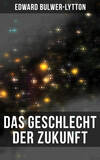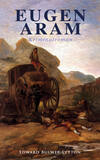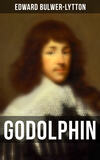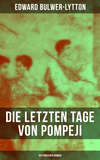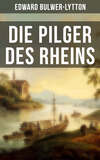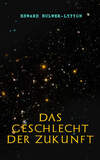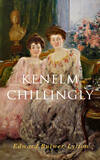Buch lesen: «A Strange Story — Complete»
PREFACE
Of the many illustrious thinkers whom the schools of France have contributed to the intellectual philosophy of our age, Victor Cousin, the most accomplished, assigns to Maine de Biran the rank of the most original.
In the successive developments of his own mind, Maine de Biran may, indeed, be said to represent the change that has been silently at work throughout the general mind of Europe since the close of the last century. He begins his career of philosopher with blind faith in Condillac and Materialism. As an intellect severely conscientious in the pursuit of truth expands amidst the perplexities it revolves, phenomena which cannot be accounted for by Condillac’s sensuous theories open to his eye. To the first rudimentary life of man, the animal life, “characterized by impressions, appetites, movements, organic in their origin and ruled by the Law of Necessity,”1 he is compelled to add, “the second, or human life, from which Free-will and Self-consciousness emerge.” He thus arrives at the union of mind and matter; but still a something is wanted,—some key to the marvels which neither of these conditions of vital being suffices to explain. And at last the grand self-completing Thinker attains to the Third Life of Man in Man’s Soul.
“There are not,” says this philosopher, towards the close of his last and loftiest work,—“there are not only two principles opposed to each other in Man,—there are three. For there are in him three lives and three orders of faculties. Though all should be in accord and in harmony between the sensitive and the active faculties which constitute Man, there would still be a nature superior, a third life which would not be satisfied; which would make felt (ferait sentir) the truth that there is another happiness, another wisdom, another perfection, at once above the greatest human happiness, above the highest wisdom, or intellectual and moral perfection of which the human being is susceptible.”2
Now, as Philosophy and Romance both take their origin in the Principle of Wonder, so in the “Strange Story” submitted to the Public it will be seen that Romance, through the freest exercise of its wildest vagaries, conducts its bewildered hero towards the same goal to which Philosophy leads its luminous Student, through far grander portents of Nature, far higher visions of Supernatural Power, than Fable can yield to Fancy. That goal is defined in these noble words:—
“The relations (rapports) which exist between the elements and the products of the three lives of Man are the subjects of meditation, the fairest and finest, but also the most difficult. The Stoic Philosophy shows us all which can be most elevated in active life; but it makes abstraction of the animal nature, and absolutely fails to recognize all which belongs to the life of the spirit. Its practical morality is beyond the forces of humanity. Christianity alone embraces the whole Man. It dissimulates none of the sides of his nature, and avails itself of his miseries and his weakness in order to conduct him to his end in showing him all the want that he has of a succor more exalted.”3
In the passages thus quoted, I imply one of the objects for which this tale has been written; and I cite them, with a wish to acknowledge one of those priceless obligations which writings the lightest and most fantastic often incur to reasoners the most serious and profound.
But I here construct a romance which should have, as a romance, some interest for the general reader. I do not elaborate a treatise submitted to the logic of sages. And it is only when “in fairy fiction drest” that Romance gives admission to “truths severe.”
I venture to assume that none will question my privilege to avail myself of the marvellous agencies which have ever been at the legitimate command of the fabulist.
To the highest form of romantic narrative, the Epic, critics, indeed, have declared that a supernatural machinery is indispensable. That the Drama has availed itself of the same license as the Epic, it would be unnecessary to say to the countrymen of Shakspeare, or to the generation that is yet studying the enigmas of Goethe’s “Faust.” Prose Romance has immemorially asserted, no less than the Epic or the Drama, its heritage in the Realm of the Marvellous. The interest which attaches to the supernatural is sought in the earliest Prose Romance which modern times take from the ancient, and which, perhaps, had its origin in the lost Novels of Miletus;4 and the right to invoke such interest has, ever since, been maintained by Romance through all varieties of form and fancy,—from the majestic epopee of “Telemaque” to the graceful fantasies of “Undine,” or the mighty mockeries of “Gulliver’s Travels” down to such comparatively commonplace elements of wonder as yet preserve from oblivion “The Castle of Otranto” and “The Old English Baron.”
Now, to my mind, the true reason why a supernatural agency is indispensable to the conception of the Epic, is that the Epic is the highest and the completest form in which Art can express either Man or Nature, and that without some gleams of the supernatural, Man is not man nor Nature, nature.
It is said, by a writer to whom an eminent philosophical critic justly applies the epithets of “pious and profound:”5
“Is it unreasonable to confess that we believe in God, not by reason of the Nature which conceals Him, but by reason of the Supernatural in Man which alone reveals and proves Him to exist?... Man reveals God: for Man, by his intelligence, rises above Nature; and in virtue of this intelligence is conscious of himself as a power not only independent of, but opposed to, Nature, and capable of resisting, conquering, and controlling her.”6
If the meaning involved in the argument, of which I have here made but scanty extracts, be carefully studied, I think that we shall find deeper reasons than the critics who dictated canons of taste to the last century discovered,—why the supernatural is indispensable to the Epic, and why it is allowable to all works of imagination, in which Art looks on Nature with Man’s inner sense of a something beyond and above her.
But the Writer who, whether in verse or prose, would avail himself of such sources of pity or terror as flow from the Marvellous, can only attain his object in proportion as the wonders he narrates are of a kind to excite the curiosity of the age he addresses.
In the brains of our time, the faculty of Causation is very markedly developed. People nowadays do not delight in the Marvellous according to the old childlike spirit. They say in one breath, “Very extraordinary!” and in the next breath ask, “How do you account for it?” If the Author of this work has presumed to borrow from science some elements of interest for Romance, he ventures to hope that no thoughtful reader—and certainly no true son of science—will be disposed to reproach him. In fact, such illustrations from the masters of Thought were essential to the completion of the purpose which pervades the work.
That purpose, I trust, will develop itself in proportion as the story approaches the close; and whatever may appear violent or melodramatic in the catastrophe, will, perhaps, be found, by a reader capable of perceiving the various symbolical meanings conveyed in the story, essential to the end in which those meanings converge, and towards which the incidents that give them the character and interest of of fiction, have been planned and directed from the commencement.
Of course, according to the most obvious principles of art, the narrator of a fiction must be as thoroughly in earnest as if he were the narrator of facts. One could not tell the most extravagant fairy-tale so as to rouse and sustain the attention of the most infantine listener, if the tale were told as if the taleteller did not believe in it. But when the reader lays down this “Strange Story,” perhaps he will detect, through all the haze of romance, the outlines of these images suggested to his reason: Firstly, the image of sensuous, soulless Nature, such as the Materialist had conceived it; secondly, the image of Intellect, obstinately separating all its inquiries from the belief in the spiritual essence and destiny of man, and incurring all kinds of perplexity and resorting to all kinds of visionary speculation before it settles at last into the simple faith which unites the philosopher and the infant; and thirdly, the image of the erring but pure-thoughted visionary, seeking over-much on this earth to separate soul from mind, till innocence itself is led astray by a phantom, and reason is lost in the space between earth and the stars. Whether in these pictures there be any truth worth the implying, every reader must judge for himself; and if he doubt or deny that there be any such truth, still, in the process of thought which the doubt or denial enforces, he may chance on a truth which it pleases himself to discover.
“Most of the Fables of AEsop,”—thus says Montaigne in his charming essay “Of Books”7—“have several senses and meanings, of which the Mythologists choose some one that tallies with the fable. But for the most part ‘t is only what presents itself at the first view, and is superficial; there being others more lively, essential, and internal, into which they had not been able to penetrate; and”—adds Montaigne—“the case is the very same with me.”
CHAPTER I
In the year 18— I settled as a physician at one of the wealthiest of our great English towns, which I will designate by the initial L——. I was yet young, but I had acquired some reputation by a professional work, which is, I believe, still amongst the received authorities on the subject of which it treats. I had studied at Edinburgh and at Paris, and had borne away from both those illustrious schools of medicine whatever guarantees for future distinction the praise of professors may concede to the ambition of students. On becoming a member of the College of Physicians, I made a tour of the principal cities of Europe, taking letters of introduction to eminent medical men, and gathering from many theories and modes of treatment hints to enlarge the foundations of unprejudiced and comprehensive practice. I had resolved to fix my ultimate residence in London. But before this preparatory tour was completed, my resolve was changed by one of those unexpected events which determine the fate man in vain would work out for himself. In passing through the Tyro, on my way into the north of Italy, I found in a small inn, remote from medical attendance, an English traveller seized with acute inflammation of the lungs, and in a state of imminent danger. I devoted myself to him night and day; and, perhaps more through careful nursing than active remedies, I had the happiness to effect his complete recovery. The traveller proved to be Julius Faber, a physician of great distinction, contented to reside, where he was born, in the provincial city of L——, but whose reputation as a profound and original pathologist was widely spread, and whose writings had formed no unimportant part of my special studies. It was during a short holiday excursion, from which he was about to return with renovated vigour, that he had been thus stricken down. The patient so accidentally met with became the founder of my professional fortunes. He conceived a warm attachment for me,—perhaps the more affectionate because he was a childless bachelor, and the nephew who would succeed to his wealth evinced no desire to succeed to the toils by which the wealth had been acquired. Thus, having an heir for the one, he had long looked about for an heir to the other, and now resolved on finding that heir in me. So when we parted Dr. Faber made me promise to correspond with him regularly, and it was not long before he disclosed by letter the plans he had formed in my favour. He said that he was growing old; his practice was beyond his strength; he needed a partner; he was not disposed to put up to sale the health of patients whom he had learned to regard as his children: money was no object to him, but it was an object close at his heart that the humanity he had served, and the reputation he had acquired, should suffer no loss in his choice of a successor. In fine, he proposed that I should at once come to L—— as his partner, with the view of succeeding to his entire practice at the end of two years, when it was his intention to retire.
The opening into fortune thus afforded to me was one that rarely presents itself to a young man entering upon an overcrowded profession; and to an aspirant less allured by the desire of fortune than the hope of distinction, the fame of the physician who thus generously offered to me the inestimable benefits of his long experience and his cordial introduction was in itself an assurance that a metropolitan practice is not essential to a national renown.
I went, then, to L——, and before the two years of my partnership had expired, my success justified my kind friend’s selection, and far more than realized my own expectations. I was fortunate in effecting some notable cures in the earliest cases submitted to me, and it is everything in the career of a physician when good luck wins betimes for him that confidence which patients rarely accord except to lengthened experience. To the rapid facility with which my way was made, some circumstances apart from professional skill probably contributed. I was saved from the suspicion of a medical adventurer by the accidents of birth and fortune. I belonged to an ancient family (a branch of the once powerful border-clan of the Fenwicks) that had for many generations held a fair estate in the neighbourhood of Windermere. As an only son I had succeeded to that estate on attaining my majority, and had sold it to pay off the debts which had been made by my father, who had the costly tastes of an antiquary and collector. The residue on the sale insured me a modest independence apart from the profits of a profession; and as I had not been legally bound to defray my father’s debts, so I obtained that character for disinterestedness and integrity which always in England tends to propitiate the public to the successes achieved by industry or talent. Perhaps, too, any professional ability I might possess was the more readily conceded, because I had cultivated with assiduity the sciences and the scholarship which are collaterally connected with the study of medicine. Thus, in a word, I established a social position which came in aid of my professional repute, and silenced much of that envy which usually embitters and sometimes impedes success.
Dr. Faber retired at the end of the two years agreed upon. He went abroad; and being, though advanced in years, of a frame still robust, and habits of mind still inquiring and eager, he commenced a lengthened course of foreign travel, during which our correspondence, at first frequent, gradually languished, and finally died away.
I succeeded at once to the larger part of the practice which the labours of thirty years had secured to my predecessor. My chief rival was a Dr. Lloyd, a benevolent, fervid man, not without genius, if genius be present where judgment is absent; not without science, if that may be science which fails in precision,—one of those clever desultory men who, in adopting a profession, do not give up to it the whole force and heat of their minds. Men of that kind habitually accept a mechanical routine, because in the exercise of their ostensible calling their imaginative faculties are drawn away to pursuits more alluring. Therefore, in their proper vocation they are seldom bold or inventive,—out of it they are sometimes both to excess. And when they do take up a novelty in their own profession they cherish it with an obstinate tenacity, and an extravagant passion, unknown to those quiet philosophers who take up novelties every day, examine them with the sobriety of practised eyes, to lay down altogether, modify in part, or accept in whole, according as inductive experiment supports or destroys conjecture.
Dr. Lloyd had been esteemed a learned naturalist long before he was admitted to be a tolerable physician. Amidst the privations of his youth he had contrived to form, and with each succeeding year he had perseveringly increased, a zoological collection of creatures, not alive, but, happily for the beholder, stuffed or embalmed. From what I have said, it will be truly inferred that Dr. Lloyd’s early career as a physician had not been brilliant; but of late years he had gradually rather aged than worked himself into that professional authority and station which time confers on a thoroughly respectable man whom no one is disposed to envy, and all are disposed to like.
Now in L—— there were two distinct social circles,—that of the wealthy merchants and traders, and that of a few privileged families inhabiting a part of the town aloof from the marts of commerce, and called the Abbey Hill. These superb Areopagites exercised over the wives and daughters of the inferior citizens to whom all of L——, except the Abbey Hill, owed its prosperity, the same kind of mysterious influence which the fine ladies of May Fair and Belgravia are reported to hold over the female denizens of Bloomsbury and Marylebone.
Abbey Hill was not opulent; but it was powerful by a concentration of its resources in all matters of patronage. Abbey Hill had its own milliner and its own draper, its own confectioner, butcher, baker, and tea-dealer; and the patronage of Abbey Hill was like the patronage of royalty,—less lucrative in itself than as a solemn certificate of general merit. The shops on which Abbey Hill conferred its custom were certainly not the cheapest, possibly not the best; but they were undeniably the most imposing. The proprietors were decorously pompous, the shopmen superciliously polite. They could not be more so if they had belonged to the State, and been paid by a public which they benefited and despised. The ladies of Low Town (as the city subjacent to the Hill had been styled from a date remote in the feudal ages) entered those shops with a certain awe, and left them with a certain pride. There they had learned what the Hill approved; there they had bought what the Hill had purchased. It is much in this life to be quite sure that we are in the right, whatever that conviction may cost us. Abbey Hill had been in the habit of appointing, amongst other objects of patronage, its own physician. But that habit had fallen into disuse during the latter years of my predecessor’s practice. His superiority over all other medical men in the town had become so incontestable, that, though he was emphatically the doctor of Low Town, the head of its hospitals and infirmaries, and by birth related to its principal traders, still as Abbey Hill was occasionally subject to the physical infirmities of meaner mortals, so on those occasions it deemed it best not to push the point of honour to the wanton sacrifice of life. Since Low Town possessed one of the most famous physicians in England, Abbey Hill magnanimously resolved not to crush him by a rival. Abbey Hill let him feel its pulse.
When my predecessor retired, I had presumptuously expected that the Hill would have continued to suspend its normal right to a special physician, and shown to me the same generous favour it had shown to him, who had declared me worthy to succeed to his honours. I had the more excuse for this presumption because the Hill had already allowed me to visit a fair proportion of its invalids, had said some very gracious things to me about the great respectability of the Fenwick family, and sent me some invitations to dinner, and a great many invitations to tea.
But my self-conceit received a notable check. Abbey Hill declared that the time had come to reassert its dormant privilege; it must have a doctor of its own choosing,—a doctor who might, indeed, be permitted to visit Low Town from motives of humanity or gain, but who must emphatically assert his special allegiance to Abbey Hill by fixing his home on that venerable promontory. Miss Brabazon, a spinster of uncertain age but undoubted pedigree, with small fortune but high nose, which she would pleasantly observe was a proof of her descent from Humphrey Duke of Gloucester (with whom, indeed, I have no doubt, in spite of chronology, that she very often dined), was commissioned to inquire of me diplomatically, and without committing Abbey Hill too much by the overture, whether I would take a large and antiquated mansion, in which abbots were said to have lived many centuries ago, and which was still popularly styled Abbots’ House, situated on the verge of the Hill, as in that case the “Hill” would think of me.
“It is a large house for a single man, I allow,” said Miss Brabazon, candidly; and then added, with a sidelong glance of alarming sweetness, “but when Dr. Fenwick has taken his true position (so old a family!) amongst us, he need not long remain single, unless he prefer it.”
I replied, with more asperity than the occasion called for, that I had no thought of changing my residence at present, and if the Hill wanted me, the Hill must send for me.
Two days afterwards Dr. Lloyd took Abbots’ House, and in less than a week was proclaimed medical adviser to the Hill. The election had been decided by the fiat of a great lady, who reigned supreme on the sacred eminence, under the name and title of Mrs. Colonel Poyntz.
“Dr. Fenwick,” said this lady, “is a clever young man and a gentleman, but he gives himself airs,—the Hill does not allow any airs but its own. Besides, he is a new comer: resistance to new comers, and, indeed, to all things new, except caps and novels, is one of the bonds that keep old established societies together. Accordingly, it is by my advice that Dr. Lloyd has taken Abbots’ House; the rent would be too high for his means if the Hill did not feel bound in honour to justify the trust he has placed in its patronage. I told him that all my friends, when they were in want of a doctor, would send for him; those who are my friends will do so. What the Hill does, plenty of common people down there will do also,—so that question is settled!” And it was settled.
Dr. Lloyd, thus taken by the hand, soon extended the range of his visits beyond the Hill, which was not precisely a mountain of gold to doctors, and shared with myself, though in a comparatively small degree, the much more lucrative practice of Low Town.
I had no cause to grudge his success, nor did I. But to my theories of medicine his diagnosis was shallow, and his prescriptions obsolete. When we were summoned to a joint consultation, our views as to the proper course of treatment seldom agreed. Doubtless he thought I ought to have deferred to his seniority in years; but I held the doctrine which youth deems a truth and age a paradox,—namely, that in science the young men are the practical elders, inasmuch as they are schooled in the latest experiences science has gathered up, while their seniors are cramped by the dogmas they were schooled to believe when the world was some decades the younger.
Meanwhile my reputation continued rapidly to advance; it became more than local; my advice was sought even by patients from the metropolis. That ambition, which, conceived in early youth, had decided my career and sweetened all its labours,—the ambition to take a rank and leave a name as one of the great pathologists to whom humanity accords a grateful, if calm, renown,—saw before it a level field and a certain goal.
I know not whether a success far beyond that usually attained at the age I had reached served to increase, but it seemed to myself to justify, the main characteristic of my moral organization,—intellectual pride.
Though mild and gentle to the sufferers under my care, as a necessary element of professional duty, I was intolerant of contradiction from those who belonged to my calling, or even from those who, in general opinion, opposed my favourite theories. I had espoused a school of medical philosophy severely rigid in its inductive logic. My creed was that of stern materialism. I had a contempt for the understanding of men who accepted with credulity what they could not explain by reason. My favourite phrase was “common-sense.” At the same time I had no prejudice against bold discovery, and discovery necessitates conjecture, but I dismissed as idle all conjecture that could not be brought to a practical test.
As in medicine I had been the pupil of Broussais, so in metaphysics I was the disciple of Condillac. I believed with that philosopher that “all our knowledge we owe to Nature; that in the beginning we can only instruct ourselves through her lessons; and that the whole art of reasoning consists in continuing as she has compelled us to commence.” Keeping natural philosophy apart from the doctrines of revelation, I never assailed the last; but I contended that by the first no accurate reasoner could arrive at the existence of the soul as a third principle of being equally distinct from mind and body. That by a miracle man might live again, was a question of faith and not of understanding. I left faith to religion, and banished it from philosophy. How define with a precision to satisfy the logic of philosophy what was to live again? The body? We know that the body rests in its grave till by the process of decomposition its elemental parts enter into other forms of matter. The mind? But the mind was as clearly the result of the bodily organization as the music of the harpsichord is the result of the instrumental mechanism. The mind shared the decrepitude of the body in extreme old age, and in the full vigour of youth a sudden injury to the brain might forever destroy the intellect of a Plato or a Shakspeare. But the third principle,—the soul,—the something lodged within the body, which yet was to survive it? Where was that soul hidden out of the ken of the anatomist? When philosophers attempted to define it, were they not compelled to confound its nature and its actions with those of the mind? Could they reduce it to the mere moral sense, varying according to education, circumstances, and physical constitution? But even the moral sense in the most virtuous of men may be swept away by a fever. Such at the time I now speak of were the views I held,—views certainly not original nor pleasing; but I cherished them with as fond a tenacity as if they had been consolatory truths of which I was the first discoverer. I was intolerant to those who maintained opposite doctrines,—despised them as irrational, or disliked them as insincere. Certainly if I had fulfilled the career which my ambition predicted,—become the founder of a new school in pathology, and summed up my theories in academical lectures,—I should have added another authority, however feeble, to the sects which circumscribe the interest of man to the life that has its close in his grave.
Possibly that which I have called my intellectual pride was more nourished than I should have been willing to grant by the self-reliance which an unusual degree of physical power is apt to bestow. Nature had blessed me with the thews of an athlete. Among the hardy youths of the Northern Athens I had been preeminently distinguished for feats of activity and strength. My mental labours, and the anxiety which is inseparable from the conscientious responsibilities of the medical profession, kept my health below the par of keen enjoyment, but had in no way diminished my rare muscular force. I walked through the crowd with the firm step and lofty crest of the mailed knight of old, who felt himself, in his casement of iron, a match against numbers. Thus the sense of a robust individuality, strong alike in disciplined reason and animal vigour, habituated to aid others, needing no aid for itself, contributed to render me imperious in will and arrogant in opinion. Nor were such defects injurious to me in my profession; on the contrary, aided as they were by a calm manner, and a presence not without that kind of dignity which is the livery of self-esteem, they served to impose respect and to inspire trust.
OEuvres inedites de Maine de Biran, vol. i. See introduction.
[Закрыть]
OEuvres inedites de Maine de Biran, vol. iii. p. 546 (Anthropologie).
[Закрыть]
OEuvres inedites de Maine de Biran, vol. iii. p. 524.
[Закрыть]
“The Golden Ass” of Apuleius.
[Закрыть]
Sir William Hamilton: Lectures on Metaphysics, p. 40.
[Закрыть]
Jacobi: Von der Gottlichen Dingen; Werke, p. 424-426.
[Закрыть]
Translation, 1776, Yol. ii. p. 103.
[Закрыть]














